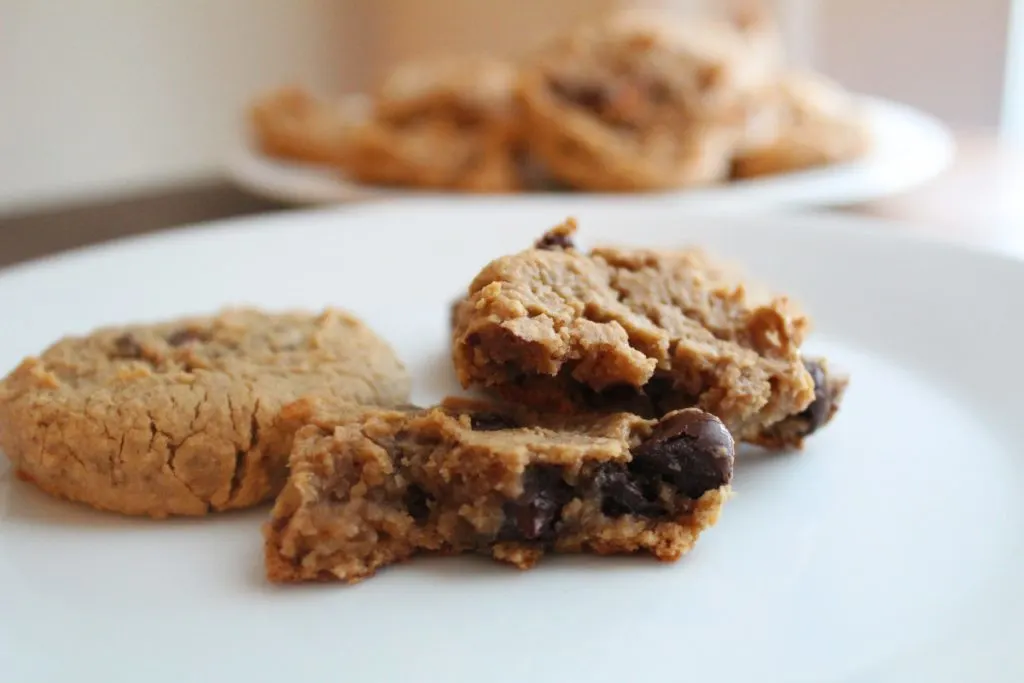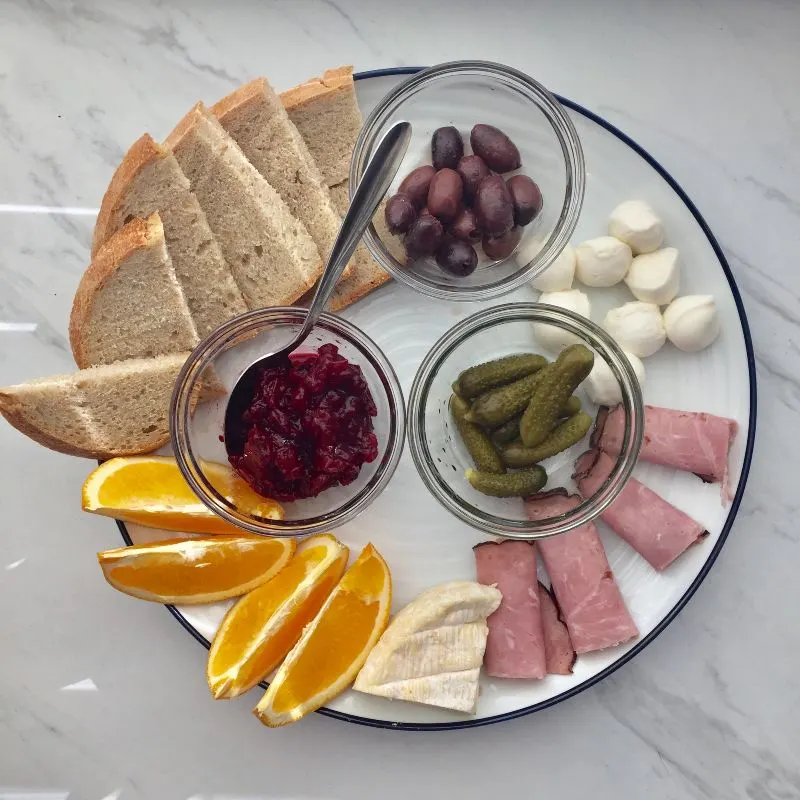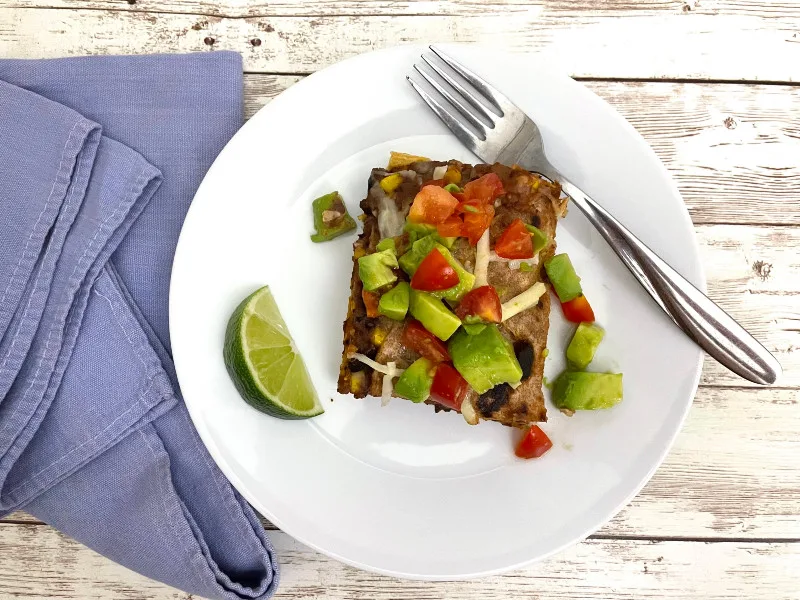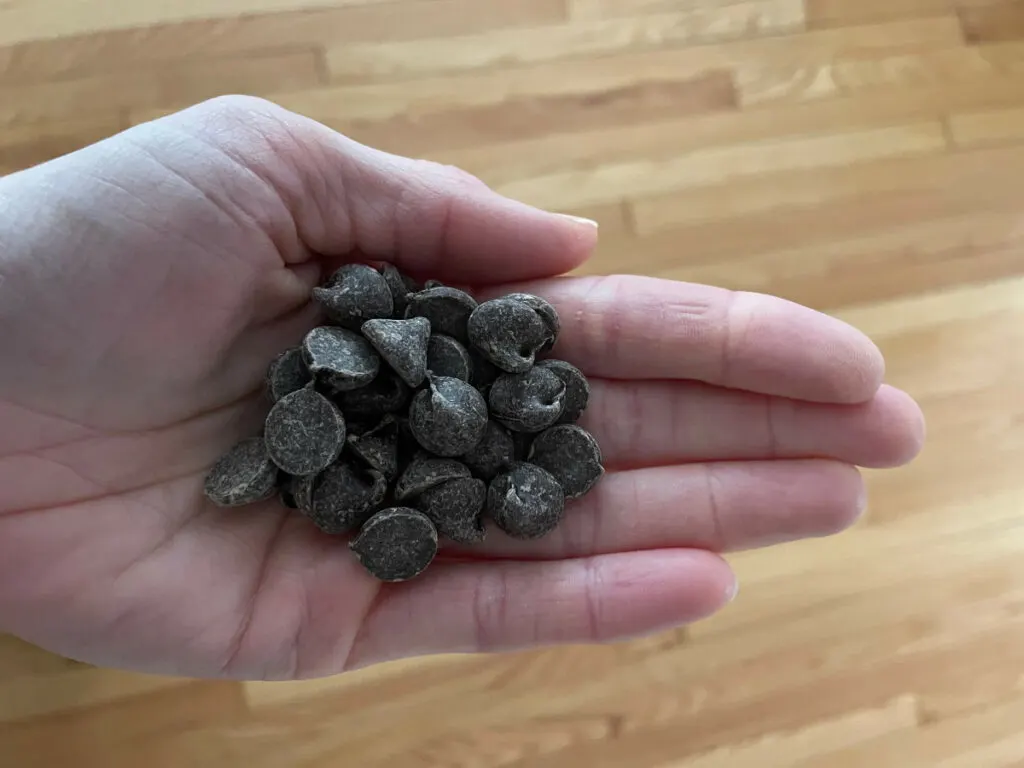There are times when things move smoothly in life and then there are the more challenging periods, the times when we are hanging on by a thread. During those more challenging times, finding simple, small ways to practice self-care can be the difference between having a full on miserable meltdown and making it through. While there are many small ways that you can provide yourself with some self-care, one of the options that is most easily accessible is food. But, for some of us, self-care through food can feel like its own kind of minefield. So, I wanted to share why I am a big believer in self-care through food and how you can use food to care for yourself both physically and emotionally.

Self-Care Through Food
Many of us have tried different forms of self-care, whether it be exercise, meditation, sleep, manicures and pedicures, massages, or time with friends. Whatever speaks to you is a great form of self-care and I fully encourage you to make space for it. But I have been thinking recently about how we rarely talk about food as positive instrument of self-care.
To my mind, there are two ways that food can be used as a tool for self-care: nourishing your body so that it stays strong and resilient and nourishing your soul so that you feel satisfied and at peace.

Nourishing Your Body Through Food
While we tend to think of self-care as giving ourselves special experiences or things, the first step in self-care is actually doing our best to keep things going as smoothly as possible. This means getting enough sleep, moving our bodies, connecting with people who make us feel good, and feeding ourselves nourishing foods.
A well-balanced diet (or even a relatively well-balanced diet) helps us in so many ways—from having enough energy and focus to get our daily tasks done, to helping to ward off illness, to improving sleep, to keeping us from getting “hangry” and fighting with our loved ones. So, making sure that you have healthier options at the core of your diet (most of the food that you consume) will make a big difference.

Healthy Food Should Taste Good
It is important to note here, though, that while nourishing your body with healthy foods that serve you well is essential, if you want to live a balanced life, it is also important to be clear that those nourishing meals MUST taste good and be satisfying to you.
Choking down foods you don’t enjoy, just because they are “healthy” is not only unpleasant, but it will mean that your body is tense when you are eating, you won’t be satisfied, and you will be left with a feeling of deprivation or even sadness that is thoroughly counter-productive. So, finding ways to make sure that your regular diet not only nourishes your body, but also tastes good to you is essential. Here are some ways to do that:
Pay Attention to How Different Foods Make You Feel
As you eat different types of food throughout the day, start to get curious about how those foods impact your mood, energy, and focus. You can make mental notes or actually write down what you discover so that you can keep close track. Here are some questions to ask yourself:
- Which foods make you sleepy or sluggish?
- Which foods give you energy?
- Are there foods that leave you feeling unsatisfied?
- Which foods always leave you happy?
- What are the foods that you eat because you “should,” but that you really don’t enjoy all that much?
- Are there foods that you avoid but miss deeply?
Hone in on the foods that you enjoy AND that give you the feeling you want.
For instance, I love bread, but it tends to make me sleepy. So, I try to avoid it at lunch time (so I don’t get a mid-afternoon slump), but enjoy it with dinner (when bedtime isn’t too far off). Similarly, a combo of vegetables and protein gives me the kind of energy I want in the middle of the day, but don’t always quite keep me full for long enough. So, I try to make sure to add in a good dose of satiating fat (usually avocado) with my lunch so that I stay full for longer.
Making this shift can be a challenge for some. I have founds that two things are really helpful. The first is to make a list of the foods that work well for your body and satisfy you (and make notes if there are certain foods that work better for certain times of day). That way, when you’re wondering what to eat and/or making your meal plan and shopping list for the week, you can easily reference the list and fill your home and your belly with foods that work well for you.
The second is to make your food taste good! Embrace spices, condiments, dressings, and sauces, all of which can add flavor and interest to a meal. Experiment with cooking techniques that amplify flavor and texture in ways that satisfy you. Roasting, for instance, will bring out the natural sweetness in vegetables. Stir frying, on the other hand, can add a nice crunch to your dishes. While, steaming and sautéeing can soften foods and offer a nice base for seasoning.

Nourishing Your Soul Through Food
Emotional eating often gets a bad rap. It’s seen as being weak or not having the will power to withstand the cravings. But while I believe taking care of our physical bodies through food is important, I also believe that food can play an important role in our psychological health.
Food can hold very strong emotional meaning for us. Eating something special or that we are craving can sometimes be the best way we can treat ourselves, relax, or connect with people that will help us to feel better. It can also comfort us by helping us feel connected to family, traditions, and culture.
What is more, eating for emotional health is valuable both during times of celebration and joy and also during hard times. Now, that doesn’t mean that I’m advocating eating in order to dull, suppress, or avoid your feelings of stress, anger, or sadness. Nor am I saying we should stuff ourselves every time we have something to celebrate. But I do think that using food as one of our tools for processing, handling, and recognizing these moments – both good and bad – in our lives is normal.
For me, that looks like a handful of chocolate chips as a mid-day treat, a hot chocolate enjoyed after dropping the boys off for their first day of school, eating whatever I want when I’m out to dinner with girlfriends, and sometimes eating past the point of comfort, just because I love the taste of something so much.

Redefining Self-Care Through Food
The funny thing is that many of us already do some or all of these sorts of things, but we don’t see it as self-care. We see it as weakness or “cheating,” which implies guilt and wrong-doing. But wouldn’t it be so much more empowering and helpful if, instead, we were to enter into these food-related decisions mindfully and acknowledge that we are taking care of ourselves? Wouldn’t that food taste so much better, feel so much better, if it wasn’t served with a side of regret? I think so.
So next time you splurge on that mocha or have an ice cream cone with your kids (or by yourself!), try viewing it as an act of self-care and see if it tastes just that much better.
If having a balanced and happy relationship with the meals you are eating is a priority for you, consider a free trial of The Scramble. We’ll help you to plan your meals so that a well-balanced diet, including treats, can be a part of your daily life.
